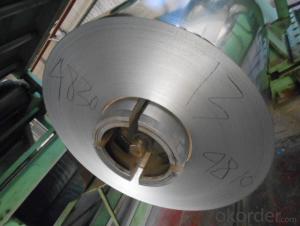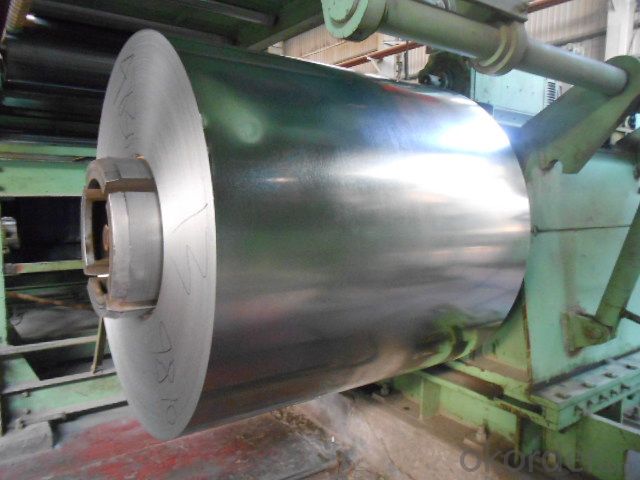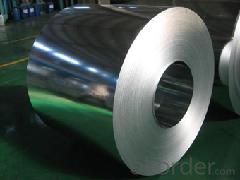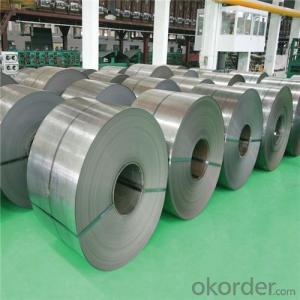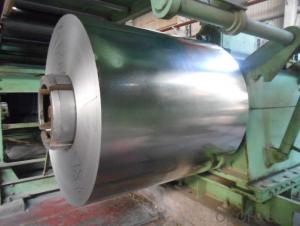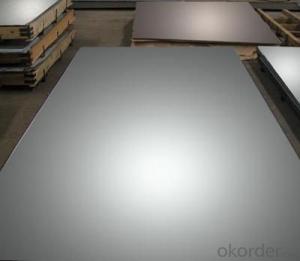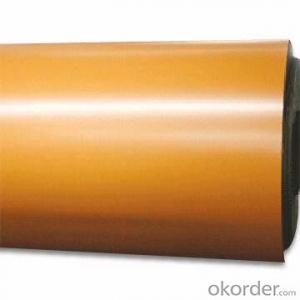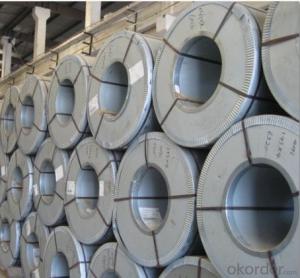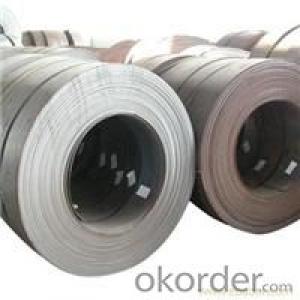Galvanized Steel Coil with Best Quality Good Price
- Loading Port:
- Tianjin
- Payment Terms:
- TT OR LC
- Min Order Qty:
- 50 m.t.
- Supply Capability:
- 10000 m.t./month
OKorder Service Pledge
OKorder Financial Service
You Might Also Like
Hot-dip Zinc Coating Steel Building Roof Walls
1.Structure of Hot-Dip Galvanized Steel Sheet Description:
Hot-dip galvanized steel coils are available with a pure zinc coating through the hot-dip galvanizing process. It offers the economy, strength and formability of steel combined with the corrosion resistance of zinc. The hot-dip process is the process by which steel gets coated in layers of zinc to protect against rust. It is especially useful for countless outdoor and industrial applications. Production of cold formed corrugated sheets and profiles for roofing, cladding, decking, tiles, sandwich walls, rainwater protective systems, air conditioning duct as well as electrical appliances and engineering.
2.Main Features of the Hot-Dip Galvanized Steel Sheet:
• Excellent process capability
• Smooth and flat surface
• Workability, durability
• Excellent anticorrosive property
• High strength
• Good formability
• Good visual effect
3.Hot-Dip Galvanized Steel Sheet Images:
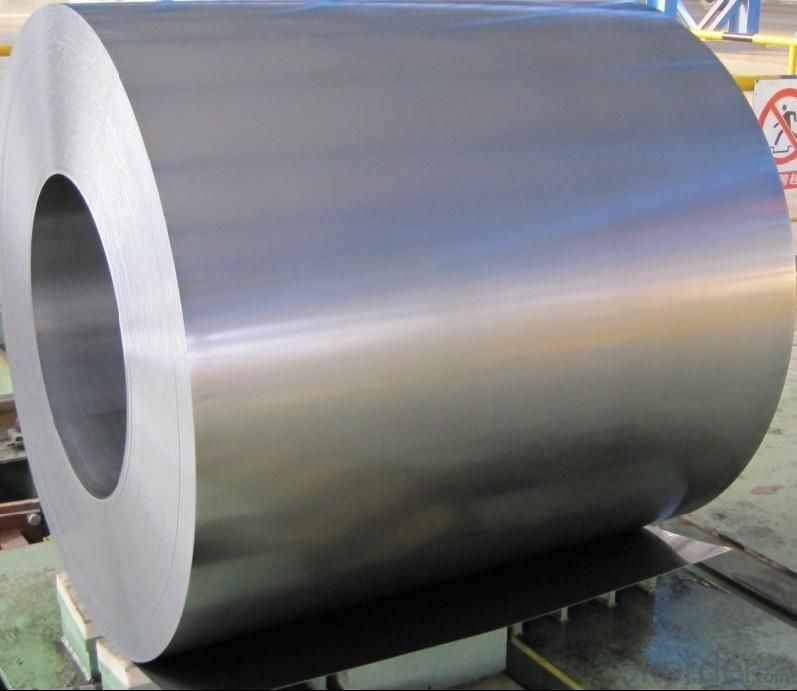
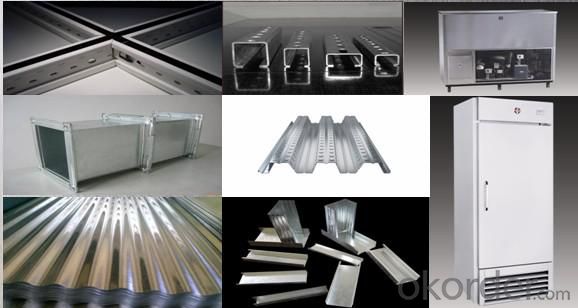
4.Hot-Dip Galvanized Steel Sheet Specification:
Standard: ASTM, JIS,EN
Grade: CS, DX51D+Z,SGCC, SS 230~550,S220GD+Z~S550GD+Z, SGC340~SGC570
Thickness: 0.1mm~5mm
Width: max 2000mm
Coil weight:3-12 MT
Coil ID:508/610mm
Surface structure: zero spangle, regular spangle or minimum spangle
Surface treatment: Chromate treatment, Oiled/dry, skinpassed/non-skinpassed
Packing: Standard seaworthy export package
Technology test results:

5.FAQ of Hot-Dip Galvanized Steel Sheet:
We have organized several common questions for our clients,may help you sincerely:
1.How to guarantee the quality of the products?
We have established the international advanced quality management system,every link from raw material to final product we have strict quality test;We resolutely put an end to unqualified products flowing into the market. At the same time, we will provide necessary follow-up service assurance.
2. How long can we receive the product after purchase?
Usually within thirty working days after receiving buyer’s advance payment or LC. We will arrange the factory manufacturing as soon as possible. The cargo readiness usually takes 15-30 days, but the shipment will depend on the vessel situation.
- Q: How are steel coils used in the manufacturing of shock absorbers?
- Steel coils are commonly used in the manufacturing of shock absorbers as they provide the necessary strength and flexibility to absorb and dampen shocks and vibrations. These coils are typically placed inside the shock absorber to support the weight of the vehicle and absorb the impact caused by uneven road surfaces. The coiled steel springs compress and expand to absorb the energy from the shocks, ensuring a smoother and more comfortable ride for the vehicle occupants.
- Q: What are the different coil coating options available for steel coils?
- There are several coil coating options available for steel coils, including polyester, polyurethane, fluoropolymer, silicone polyester, and plastisol coatings. Each of these options offers different properties such as durability, weather resistance, UV protection, and chemical resistance, allowing for customization based on the specific application and environmental conditions.
- Q: Hi, I would like to know if steel is an important material in desalination plants. If it is, could you specify what type of steel is used (i.e. flat steel products, long steel products, etc). Thanks.
- yes stainless steel pipes
- Q: Me and my cousin have been arguing about this. I said that superman is made out of steel, but he says that people just call him the man of steel because he's hard like steel. Does he have steel in his body?
- Hes made of steel yes!!1
- Q: I made a wood crossbow body but all I need is a bow which I want to be metal. I've used a thin steel sheet that I cut to appropriate size but when it bent with the string strung, it never went to original shape after being shot. I used a slightly thicker and it wouldn't bend at all. Anybody know what thickness and type to use? Any real answers are very appreciated. Thanks.
- So i do know way more about compound bows than I do about crossbows, but i'm going to enterprise an opinion. For my part, i would probably lean toward the compound bow. A part of it's only that i like them higher. However, moreover to that, more often than not when you find yourself hunting you will carry the crossbow loaded, on the grounds that the are typically awkward to load when you have the shot. If you're hunting from a blind or from a tree stand (and might figure out easy methods to load the item whilst you're up there) that's almost always ok. But when you need to tote a crossbow round whilst it's loaded, that may be a bit dicier proposition. Most crossbow safeties are lovely crude making the likelihood of by chance firing one alot bigger than with a rifle. Now, to the plus facet, a crossbow has essentially the entire upside of firing a rifle - best accuracy, same ergonomics, can run a scope on them. Without the downside - no real recoil, no longer too loud and you simply have a lovely excellent trigger on about any of them. Compounds are way more work. Plus it is much tougher to be accurate under stress with a compound than a crossbow. Regarding the protection? Don't particularly find out about that. After I was once doing shooting alot of archery, my 3 - D bow for outdoor stuff was once at ninety two pounds with a fifty five% letoff. My goal bow was once round 60. I had to pretty on the whole take care of string stretch, and tuning with the three - D bow. So i'd expect a crossbow to be in that regional. 5 hours to your nearest Bass pro? Good for a crossbow perhaps it's valued at it because no longer too many places raise them. Nonetheless, should you do back to a compound bow it appears rough to feel that would be your nearest archery professional shop. Thinkingblade
- Q: Building the bulwurk, general use on trawlers. What kind of steel is best suited.
- How big is your trawler going to be and what use, The ones you see off the Alaska Coast or a Gulf Coast Shrimper? My preference in today's economy would not make sense and that is Aluminum.....not steel at all, maybe even Fiberglass, but $$$$ talk so Steel is cheaper, but you need to know what you are doing. The designer of the hull should have specified the right /preferred grade. It today's world there are many more choices available. You use a mild steel, most often grade A or B, but some applications call for grade D. Check your blue prints and list of materials. Edit. Ok I understand. There are 2 ways to go. One is use a relatively cheep steel and use higher cost epoxy primers and paint, often requiring special surface preparation just before priming, or two, using a much higher cost steel with more chrome and nickel in it. Grades that begin with #3xxx These are weldable with rods that are available, and can be welded directly to mild steels. However these are 3X the cost. If your a Shrimper, I'm guessing gulf coast. I worked with several boat yards in the 70's installing spray urethane foam for insulating there holes. So I've been around lots of small yards from Florida to Texas. I'd call the nearest steel warehouse and ask what they would recommend. You might find what you want at a scrap yard. I've lucked out several times picking up 1/4 plate scrap$ and I'd bet the scrapyard guy would know just what you need. I know there are places to get what you need in Mobile and New Orleans. Good luck!
- Q: How are steel coils inspected for thickness variations?
- Steel coils are inspected for thickness variations using non-contact measurement techniques such as laser or ultrasonic sensors. These sensors are capable of accurately detecting and measuring the thickness of the steel coils at various points along their length. The collected data is then analyzed to identify any variations in thickness and ensure the quality and consistency of the steel coils.
- Q: What are the dimensions of steel coils used in shipbuilding?
- The dimensions of steel coils used in shipbuilding vary depending on the specific requirements of the ship being built. However, common dimensions for steel coils in shipbuilding typically range from 2-15 mm in thickness and 600-2000 mm in width.
- Q: How are steel coils used in the agricultural industry?
- Steel coils are commonly used in the agricultural industry for various purposes. They are primarily used in the manufacturing of machinery and equipment such as tractors, harvesters, and irrigation systems. Steel coils are also used in the construction of storage structures, fencing, and other infrastructure required for agricultural operations. Additionally, steel coils are utilized in the production of farm implements like plows, cultivators, and seeders, providing durability and strength to withstand the demanding field conditions.
- Q: Are Steel Building Kits really helpful while erecting a steel building?
- Of course yes! Steel building kit is design specific corresponding to the type of steel building required to be constructed or erected. The steel building kit consists of all the necessities needed by the purchaser or the investor. As steel buildings are prefabricated or pre-engineered they are manufactured in factories in various sections and parts which are to be brought to the construction site to be assembled. So in any case they are beneficial :)
Send your message to us
Galvanized Steel Coil with Best Quality Good Price
- Loading Port:
- Tianjin
- Payment Terms:
- TT OR LC
- Min Order Qty:
- 50 m.t.
- Supply Capability:
- 10000 m.t./month
OKorder Service Pledge
OKorder Financial Service
Similar products
Hot products
Hot Searches
Related keywords
